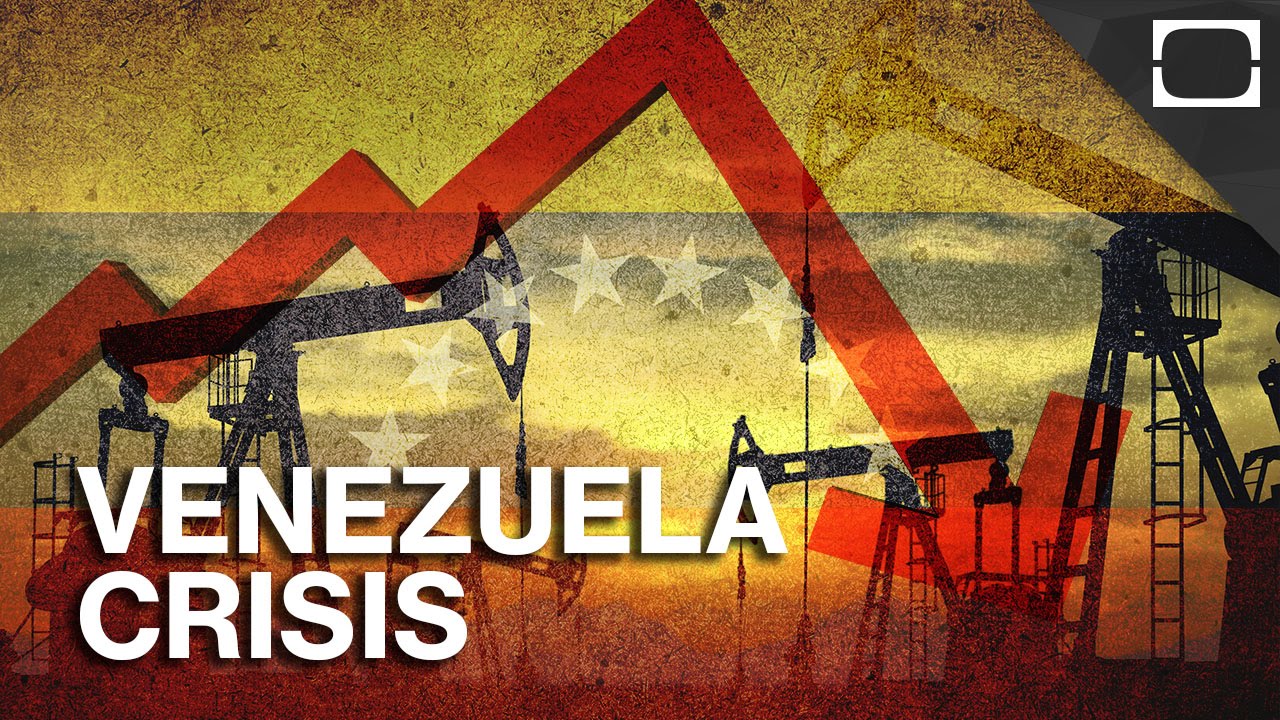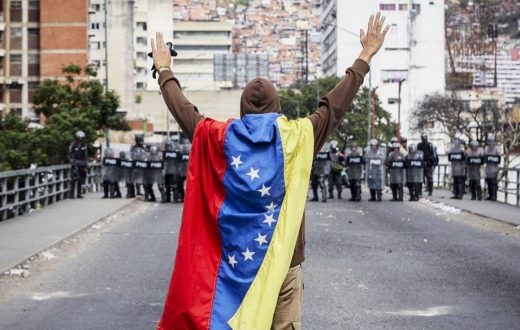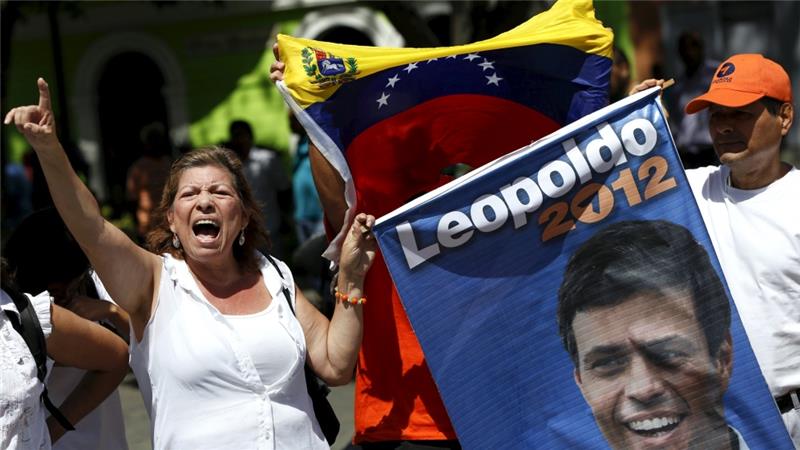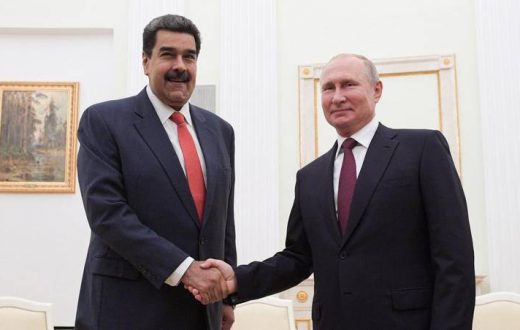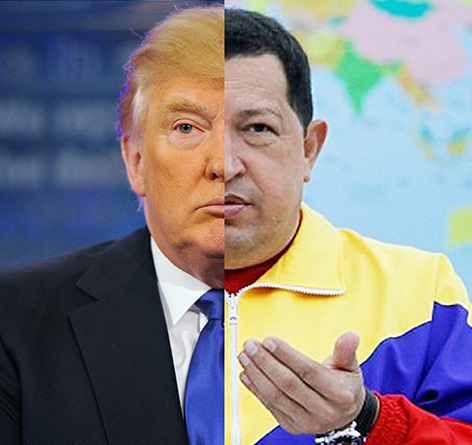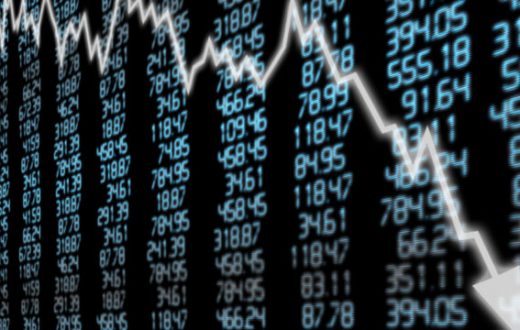- Given their fragmented, decentralized structure, Venezuela’s colectivos would have a difficult time openly confronting security forces in the coming year.
- These groups will try to maintain their independence in the neighborhoods they control in spite of government efforts to disarm them.
- The government probably will not be able to disarm the colectivos that run the impoverished slums of western Caracas in 2016, despite security operations in the area.
- The colectivos will try to take advantage of Venezuela’s dire economic situation by stealing food and basic goods and reselling them at higher prices.
Analysis
Venezuela has been in a tailspin since former President Hugo Chavez died in March 2013. But in addition to the country’s visible economic and political deterioration, another crisis is emerging, one that is perhaps less conspicuous but no less damaging.
Tension is rising between Venezuelan security forces and the pro-government patronage groups known as colectivos. Despite being highly disorganized, the colectivos have managed to take advantage of the ruling party’s fragmentation and its weakened grip on power, bringing anarchy to the streets of Caracas. If the Venezuelan government does not move quickly to disarm the groups, it will risk losing more control of the neighborhoods in which they operate. Given enough time, the colectivos could even evolve into organized crime groups — a threat that would prove even more difficult to eradicate.
The Rise of the Colectivos
Venezuela’s colectivos, colloquially known as “the guardians of Chavez’s revolution,” are armed groups linked to the ruling United Socialist Party of Venezuela (PSUV) through patronage. They classify themselves as anti-imperialists and anti-capitalists. Though they profess their loyalty to Chavez, the colectivos did not begin during Chavez’s presidency. In fact, they started well before his time, emerging between the 1960s and 1980s as small, underground left-wing groups that were marginalized by Venezuela’s two-party political system.
However, the colectivos did not truly gain prominence until 1989, when protests broke out against fuel and transportation price hikes passed by former President Carlos Andres Perez. At that point, the groups began to coalesce in support of Chavez’s eventual coup attempt in 1992. All the while, they built their own politically autonomous zones in the low-income neighborhoods of western Caracas, including Barrio 23 de Enero, where most colectivos are based today.
In the early 2000s, the PSUV began to seek greater political support from these neighborhoods, and the formation and influence of colectivos began to increase as a result. The groups’ clout reached its peak during the 2004-2008 tenure of former Caracas Mayor Juan Barreto, who served as a conduit between the colectivos and the Chavez government. The mayor appointed group leaders to positions of power in exchange for their political backing. Over time, patronage links thickened and multiplied between the colectivos and the ruling Chavista elite..
After Barreto left office, the various colectivos, which were oriented toward an array of cultural, political and paramilitary goals, united under a single umbrella: the National Commoner Network. Though technically a state-affiliated institution, the National Commoner Network has been able to operate independently of the government since its formation.
The colectivos’ detachment from the state is what has led to their structural disorganization, and what will likely lead to their continued fragmentation as time goes on. Today, there are more than 35,000 colectivo members scattered across Venezuela, belonging to many different groups that compete with one another for funds and territory.
Still, some 80 percent of Venezuela’s colectivos are concentrated in western Caracas, primarily in the neighborhoods of Sucre, Petare, Cotiza, Chacao and Catia. The bulk of these groups’ operations are conducted in Barrio 23 de Enero, located near the Miraflores Palace. Instead of being pushed to the capital’s outskirts, the colectivos operate in the heart of the city, not far from most of Venezuela’s government buildings.
For the most part, Venezuelan security forces are not allowed into neighborhoods controlled by colectivos without first receiving permission, even if they have search and arrest warrants. The government has lost its sovereignty in such areas, making it difficult to enforce the rule of law there. This has given the colectivos room to pursue illegal activities largely unhindered, including drug trafficking, extortion, racketeering, contract killings and car theft.
Caracas Tries to Regain Control
In some ways, the colectivos’ interests still align with those of the PSUV, their longtime backers, particularly when it comes to tamping down on Venezuela’s political opposition. For example, the colectivos used aggressive tactics, including attacks against political rallies for Venezuelan opposition leaders, in the lead-up to the country’s December 2015 legislative elections. They subsequently harassed opposition lawmakers being sworn into the National Assembly in January.
Nevertheless, a rift is forming between the colectivos and the government of President Nicolas Maduro. Many colectivos are critical of corruption among the Chavista elite and have accused officials of lacking true revolutionary spirit. At the same time, several paramilitary colectivos have announced that they will fight for the ideals of Chavismo — even if it means going against Maduro.
In response to the growing tension and to rising security concerns stemming from the colectivos, Maduro launched Operation Liberation and Protection of the People in mid-2015. The effort, which primarily aimed to disarm the paramilitary colectivos and combat organized crime more generally, sparked an unofficial war between the colectivos and the government. The feud resulted in the deaths of 350 public officials in 2015; in January, government forces reciprocated by killing more than 200 alleged members of organized crime. In the meantime, the colectivos have antagonized Maduro even more by killing off-duty security personnel and kidnapping a high-ranking military officer.
As economic and political instability rises, the streets of Caracas will likely see more violence. So far, the government has not proved capable of pacifying and retaking the colectivo-controlled neighborhoods, which are essentially separate political entities. Over time, paramilitary colectivos could begin to move away from political activities if they lose the patronage of the ruling party, morphing into well-armed criminal organizations instead.
The colectivos will face their own constraints in the battle against Venezuela’s security forces. They lack hierarchical organization, which will limit the amount of coordination they can achieve. These groups also continue to rely on financial support from figures in the government, which is contingent upon their ideological backing. All told, the colectivos will likely remain divided, especially as Caracas applies constant pressure on them to disarm. Though the colectivos probably will not voluntarily comply with the government’s demands, their resistance will leave the ruling party with little choice but to continue its operations, even if it is unlikely to regain control of the capital’s neighborhoods by the end of 2016.
Still, the colectivos will have a chance to make gains in other ways. As the Venezuelan economy continues to fall apart, the colectivos will likely seize the opportunity to launch contraband operations, stealing trucks carrying food and basic products with the intent of reselling the stolen goods at much higher prices. And the Maduro government, already embroiled in a lengthy political spat with the opposition, will likely be too preoccupied to stop them.

